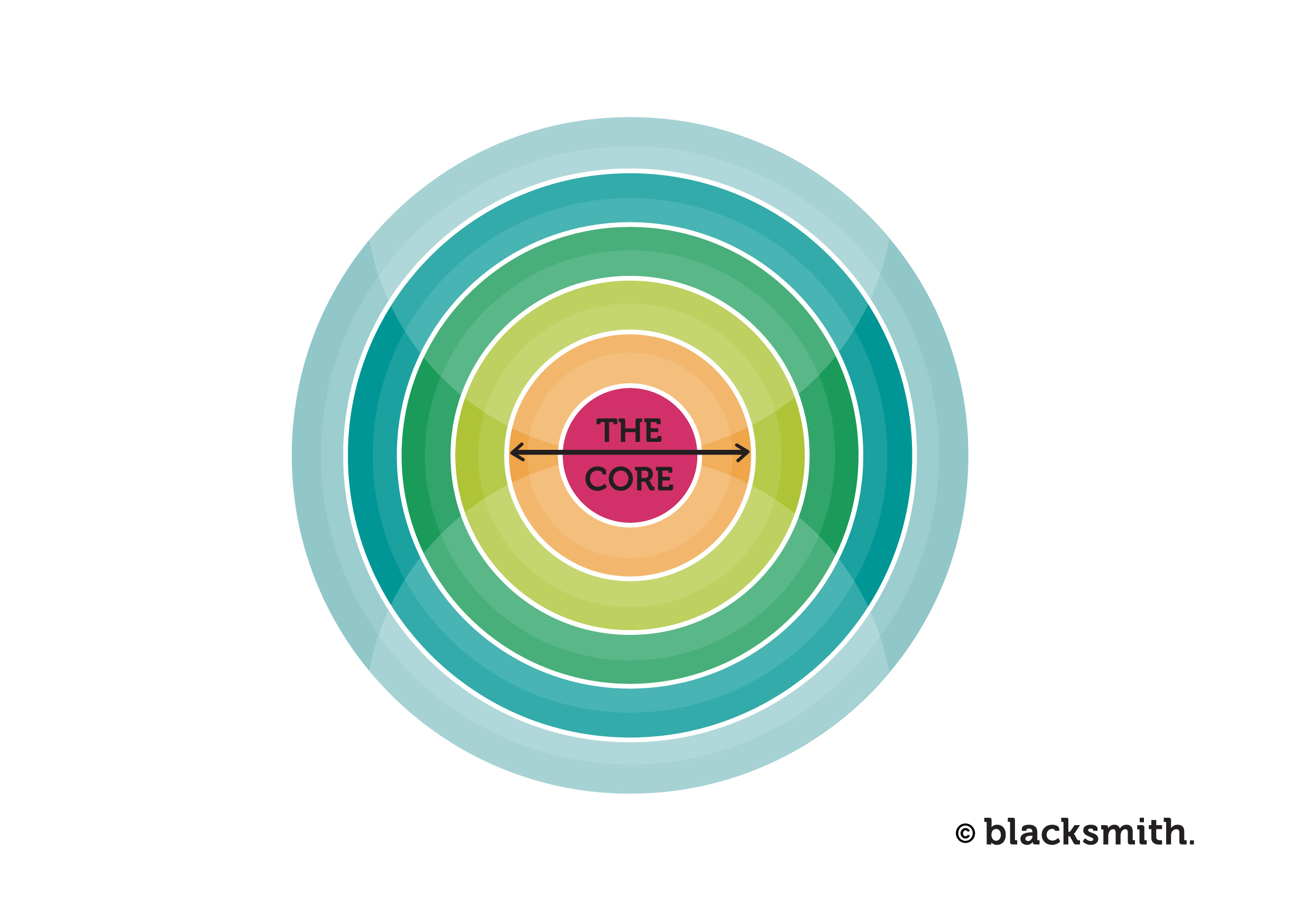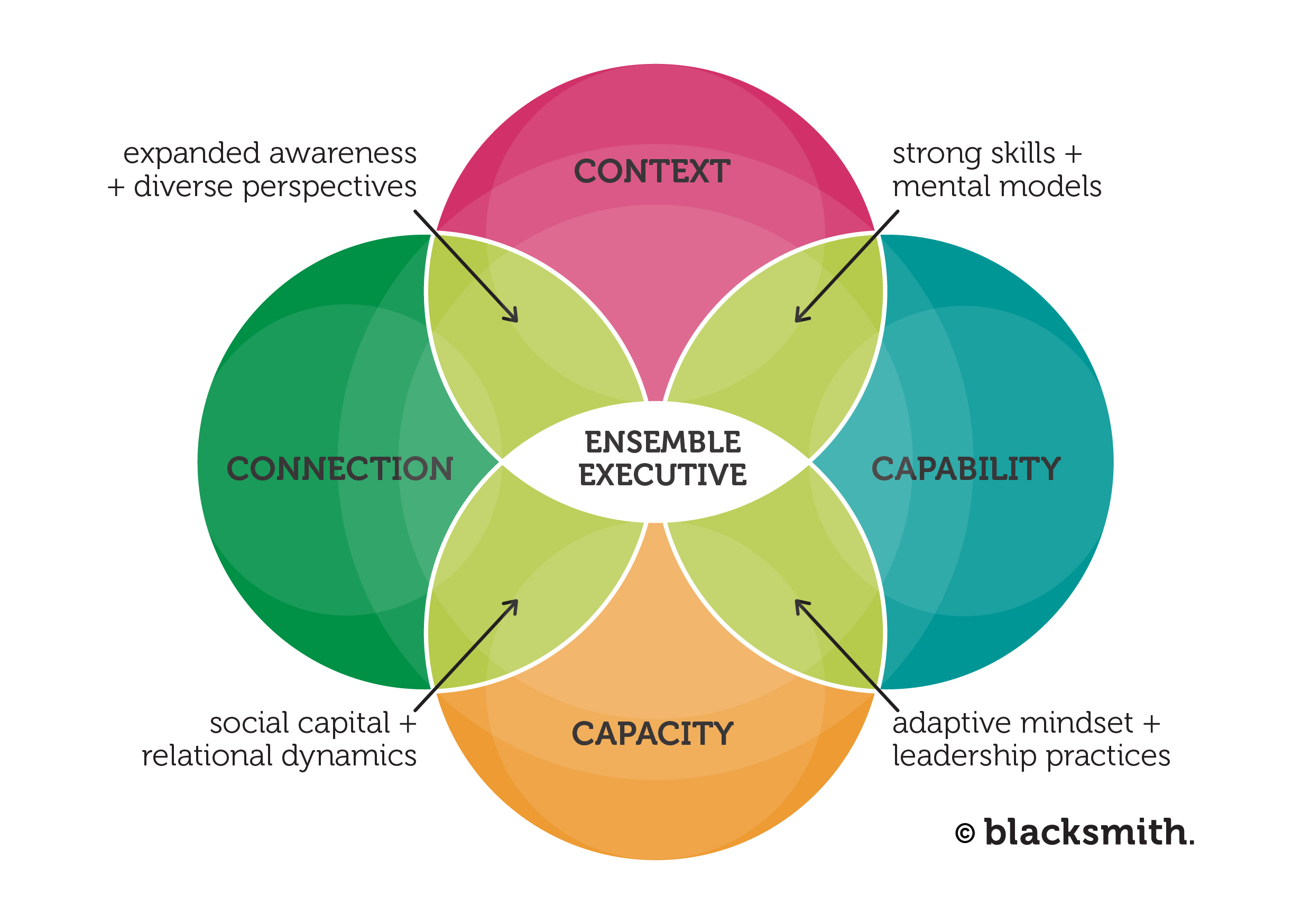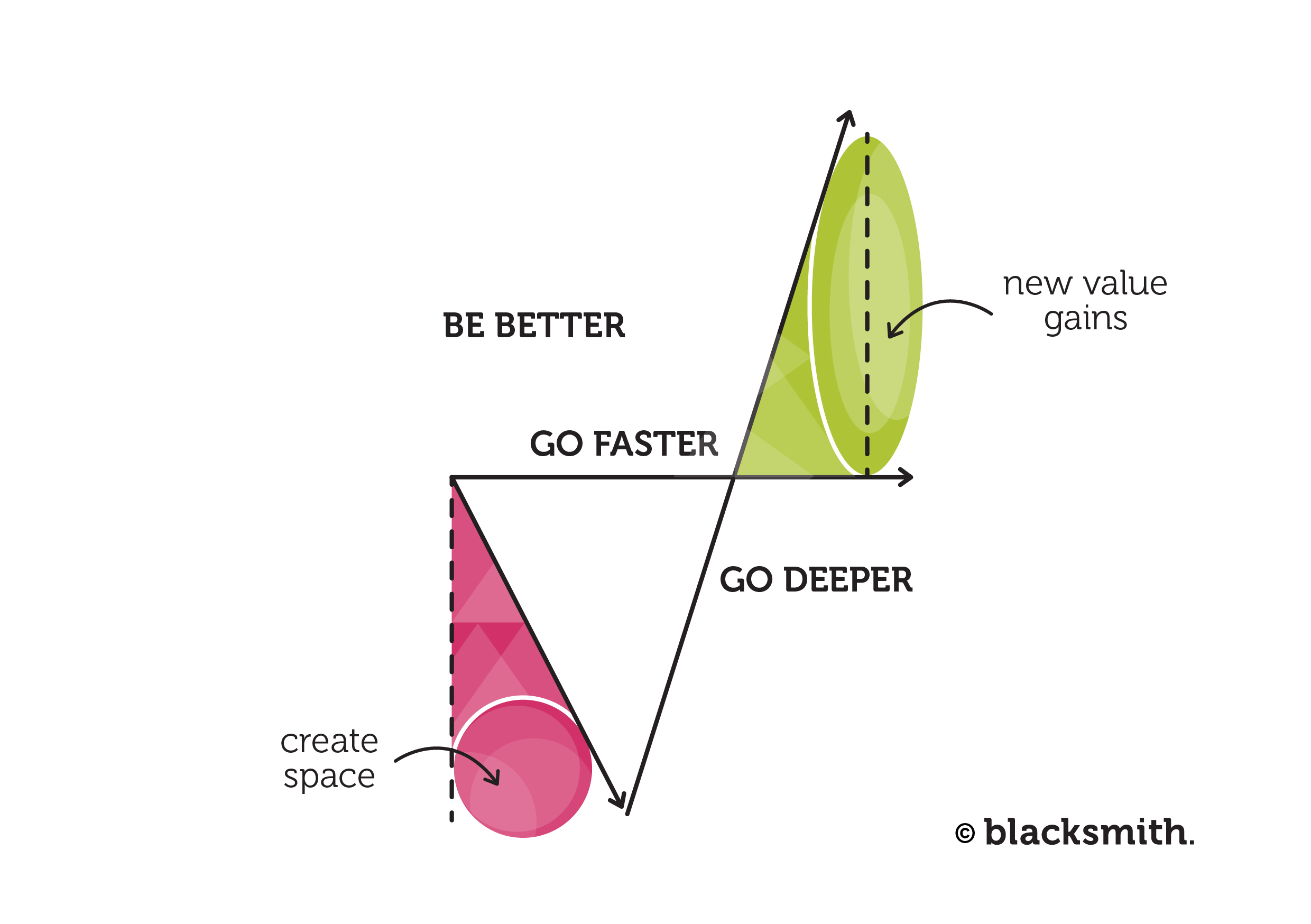Human-centred Leadership
We believe that in order to be fit for the future and not just today, your Executive Team needs to evolve both as individual leaders and collectively as an ‘ensemble’.
The complex human, not just business, challenges they’re leading into now and over the coming years demand they understand their roles as influencers and creators of the living human system that is their Executive Team, functional team, and organisation.
Organisations may be represented as two-dimensional structures of lines and boxes in a traditional organisational chart but their reality as complex human systems of relationships is much more dynamic. As is the ever-evolving context in which they and their people live, lead and work.
Executive Teams are key players in this system of relationships, a system filled with deeply wired human needs, unconscious psychological contracts, and the ever present potential for drama and conflict. It’s a system they shape with the mindsets, beliefs and stories they use to make sense of themselves, each other and the world; with the energy, attitude, and emotional state they bring into each and every interaction; and with the behaviours they demonstrate in their day-to-day leadership.
In our world, human-centred leadership means placing curiosity and understanding for all it is to be human and our shared common humanity at the centre of leadership and its development.
The Big Three
In our experience there are THREE foundation elements of human-centred leadership that will help leaders be fit for the future, not just today:
Adaptive – Drawing on the work of Heifetz & Linksy (Harvard), our approach to developing adaptive leaders operates on both an individual level and a collective one.
At an individual level, being adaptive means being self-aware, growth-centred, antifragile, and committed to learning, with all the personal leadership practices that requires. These include a commitment to holistic wellbeing and a healthy relationship with Self, in order to have a deep well of personal capacity upon which to draw whilst operating in what Heifetz calls The Zone of Productive Distress.
At a collective leadership level, it means your leaders working together to tackle adaptive challenges in ways that access the best of our humanness rather than become sidelined by our shadow sides. It means learning from the past, exploring possibilities, experimenting with new ways of being and doing, and letting go of those that no longer serve. And it means doing all of this from a place of safety, connection, and mutual respect in situations and at times that bring with them stress, uncertainty, and the risk of failure.
Collaborative – The work required of leaders at The Core of an organisation is increasingly collaborative. Working across the enterprise, with a focus on the future and not just the needs of today, isn’t neat, tidy, easy work. It’s full of energy, friction, diverse perspectives, and often competing priorities and demands. It’s full of unknowns and unknowables, uncertainty and ambiguity, all in an increasingly time-pressured environment.
This way of working sets off a combination of ‘triggers’ deep in our human wiring that is guaranteed to bring out the not-so-great sides of our shared humanity unless we develop the muscles, mental models, and mindsets required to access all its positive possibilities.
If you expect your Executive Team to operate together in this new collaborative way, it makes sense to develop it together as well; having a shared, collective development experience that grows connection, capacity and capability so the value of the whole is greater than the sum of its parts.
Humanistic – We believe the time has come to move beyond the mechanistic, ‘Taylorist’ model of management and toward a form of leadership inspired by humanistic psychology and philosophy, grounded in the context of the 21st century not in the two hundred year-old, Industrial Age thinking of the 19th.
Taking a humanistic approach means being grounded in an understanding of what it is to be human and our shared common humanity. We have deeply wired needs for security that must be met before we can focus on growth. We must learn to value wisdom not just knowledge, demonstrate kindness and compassion over ‘niceness’ and a need for control, and work toward wholeness while respecting individual human agency.
Developing these capacities and capabilities isn’t a ‘one-and-done’ thing. It requires a sense of common purpose, a shared commitment to growth, long-term applied practice, and a willingness to be a beginner over and over and over again.
We are always changing, as is our context. Doing what we can to create that change in conscious and deliberate ways is what makes the difference.
Strengthen The Core
Based on over fourteen years experience delivering leading edge development into New Zealand organisations, we believe that Blacksmith makes the biggest difference by working with the leaders who form The Core of your organisation: the CEO and their Executive Team.

[Fig.1: Strengthen The Core, Kate Billing, Executive Development Director, Blacksmith]
Leaders with this level of experience and responsibility have generally had plenty of management ‘skill-and-drill’ development. We choose to focus instead on the holistic development of your Executive Team both as individuals (the human at the centre of leadership) and as a human-to-human ensemble, each playing their part in harmony with the others as a united performance across the enterprise.
This means not just looking at capability development through skills, tools, and frameworks but also exploring the nature of human experience, the way we’re wired as humans (individually and collectively) and how that supports and sidelines our intentions and efforts to work together for the good of the wider organisation and its ambitions, not just meet our individual needs for security, performance, and recognition.
Along with capability development, our Ensemble Executive™ approach to Executive Team development includes raising awareness of context across many levels (human, personal, interpersonal, organisational, and wider systems), deliberately growing capacity (personal and interpersonal), and cultivating connection in order to create belonging, access diverse perspectives, and unlock the potential of the group.

[Fig.2: Ensemble Executive™ Model, Kate Billing, Executive Development Director, Blacksmith]
Become Better Together
In our experience, the usual way of developing leaders at The Core of an organisation is through individual interventions such as 1-on-1 coaching and solo participation in development programmes outside the organisation.
While this kind of development absolutely has its place, what these ‘system-of-one’ interventions leave out is the power of a shared, collective development experience; one that is grounded in your context and your culture.
The development experiences that we design and facilitate:
- Break down silos
- Facilitate understanding
- Grow safety, trust and respect
- Myth-bust stories that create drama
- Reduce unhelpful friction and facilitate creative conflict
- Increase collaboration and cooperation; and
- Deepen a sense of connection and belonging.
And our approach to development doesn’t just have a positive impact on the leaders directly involved. Because of our holistic approach to developing the human at the centre of leadership, your people become better leaders in all areas of their lives: at work, at home, and in community.
Create Space: Go Deeper - Be Better
In a world where everything is moving faster and faster, in less and less time, we believe there is a huge need for and benefit in creating the space to go deeper. Slowing down in order to focus, seeing more clearly, thrashing through challenges and differences if required, creating deeper understanding, promoting relational connection, and facilitating alignment and commitment of effort to enable better ways of being and doing.

[Fig.3: Create Space Model, Kate Billing, Executive Development Director, Blacksmith]
Our development experiences create the space to go deeper into our individual experience, deeper into our ways of being and doing as a group, deeper into the context that’s emerging around us, deeper into our understanding of what it is to be human, and how we can be better through our common humanity rather than be at its mercy.
Our approach combines vertical development (exploring our ways of thinking, feeling and making sense of the world and the people around us) with horizontal development (acquisition of new knowledge and skills) so that leaders evolve personally and collectively to create new value gains.
